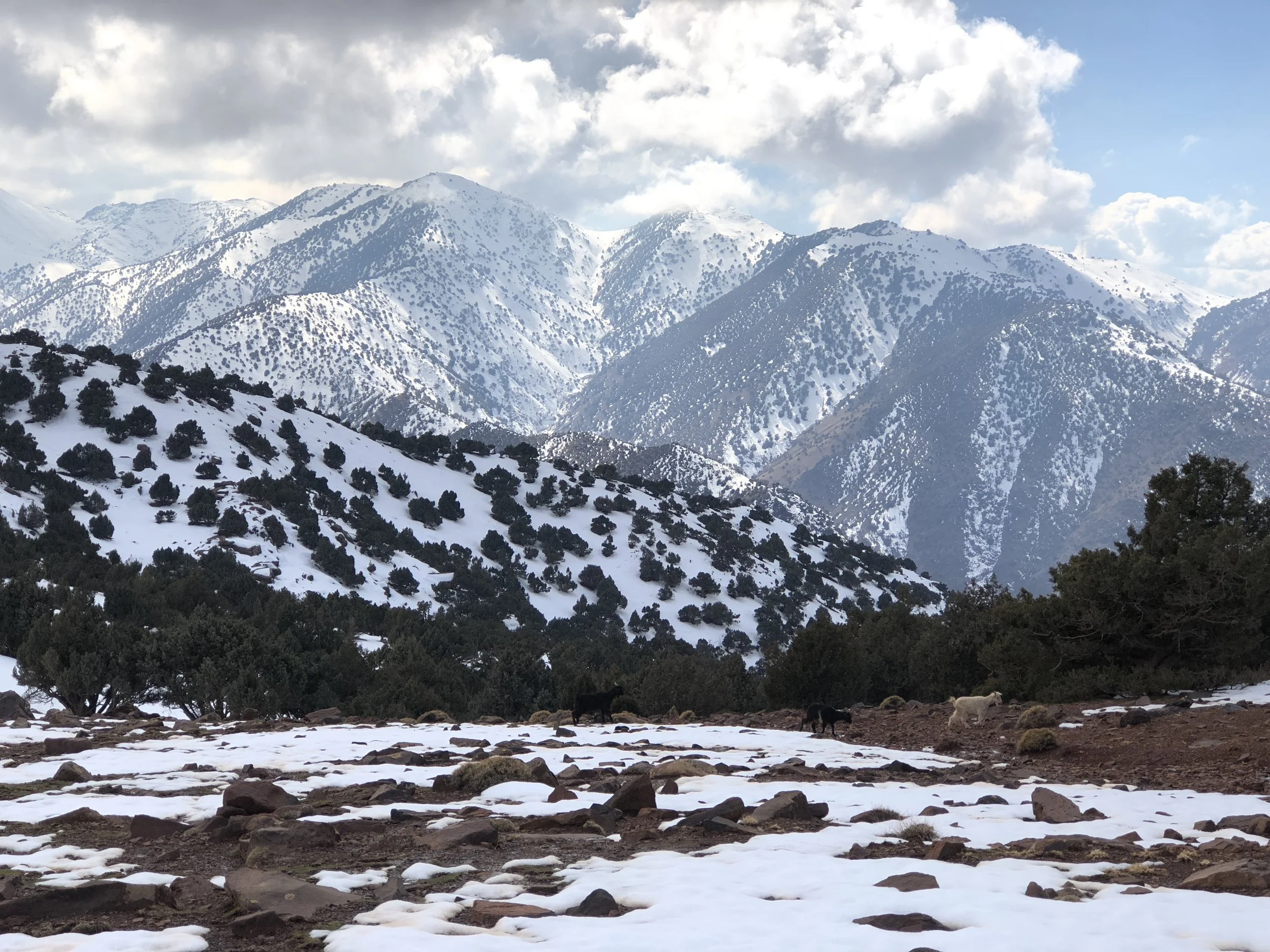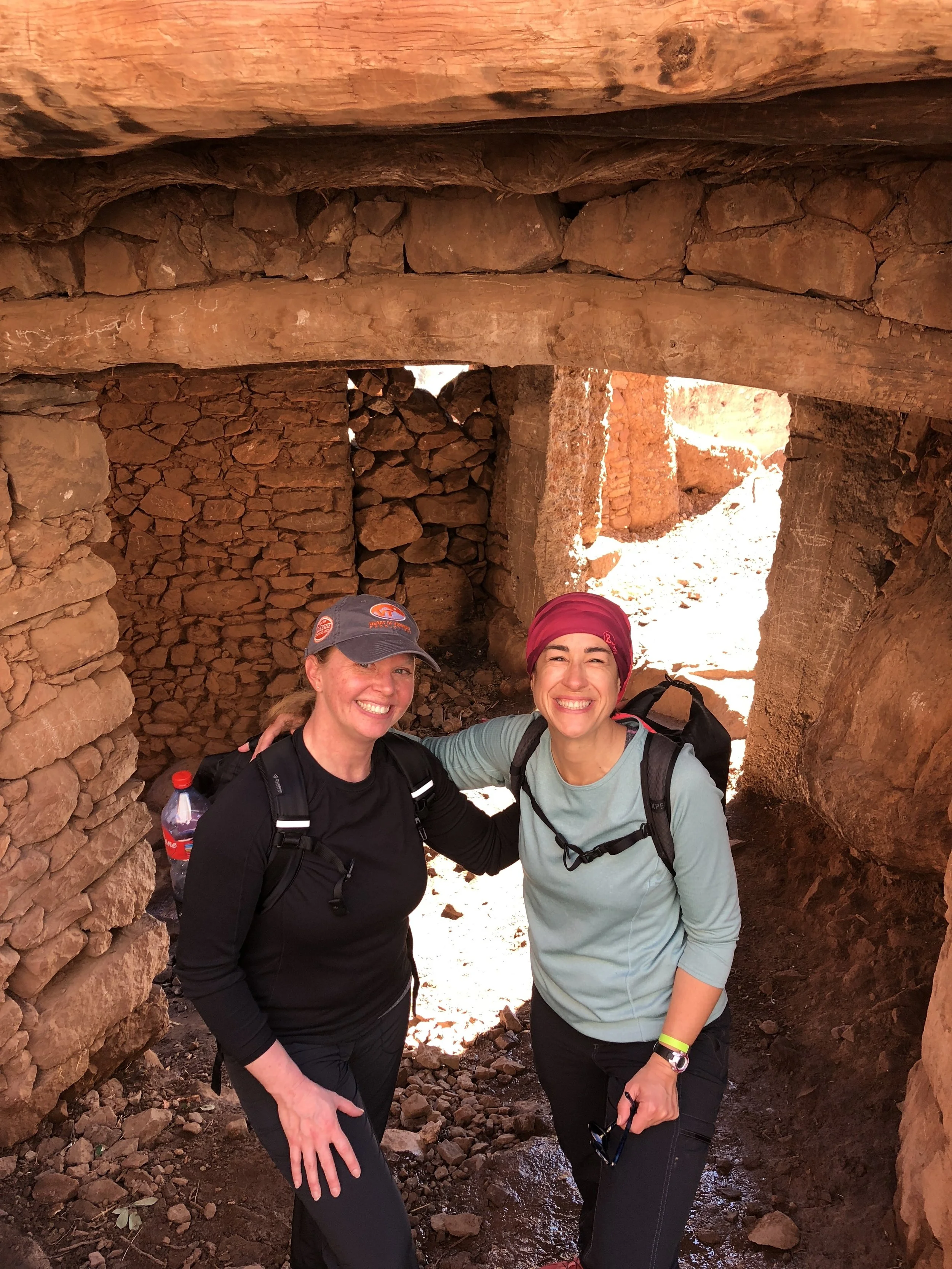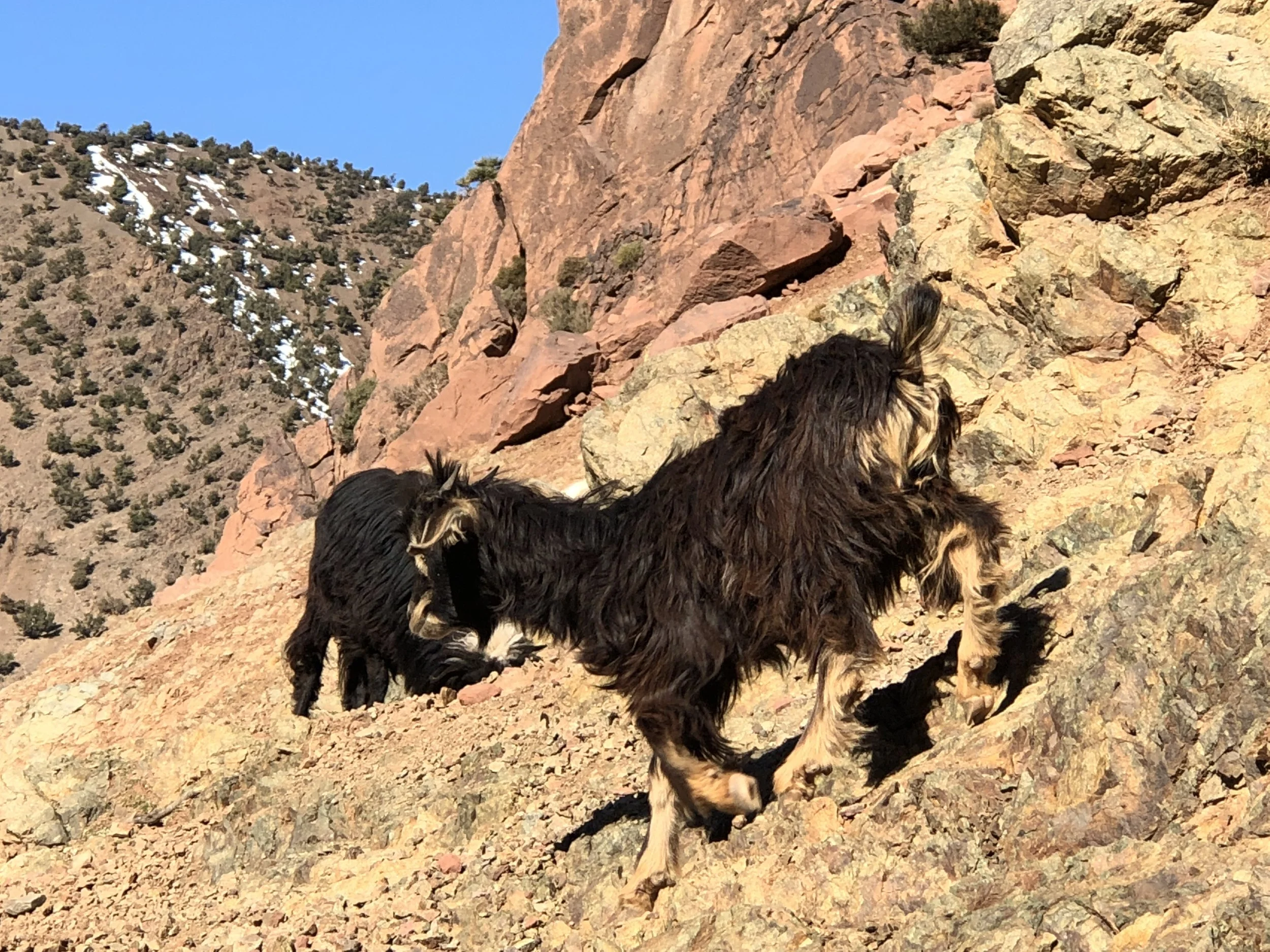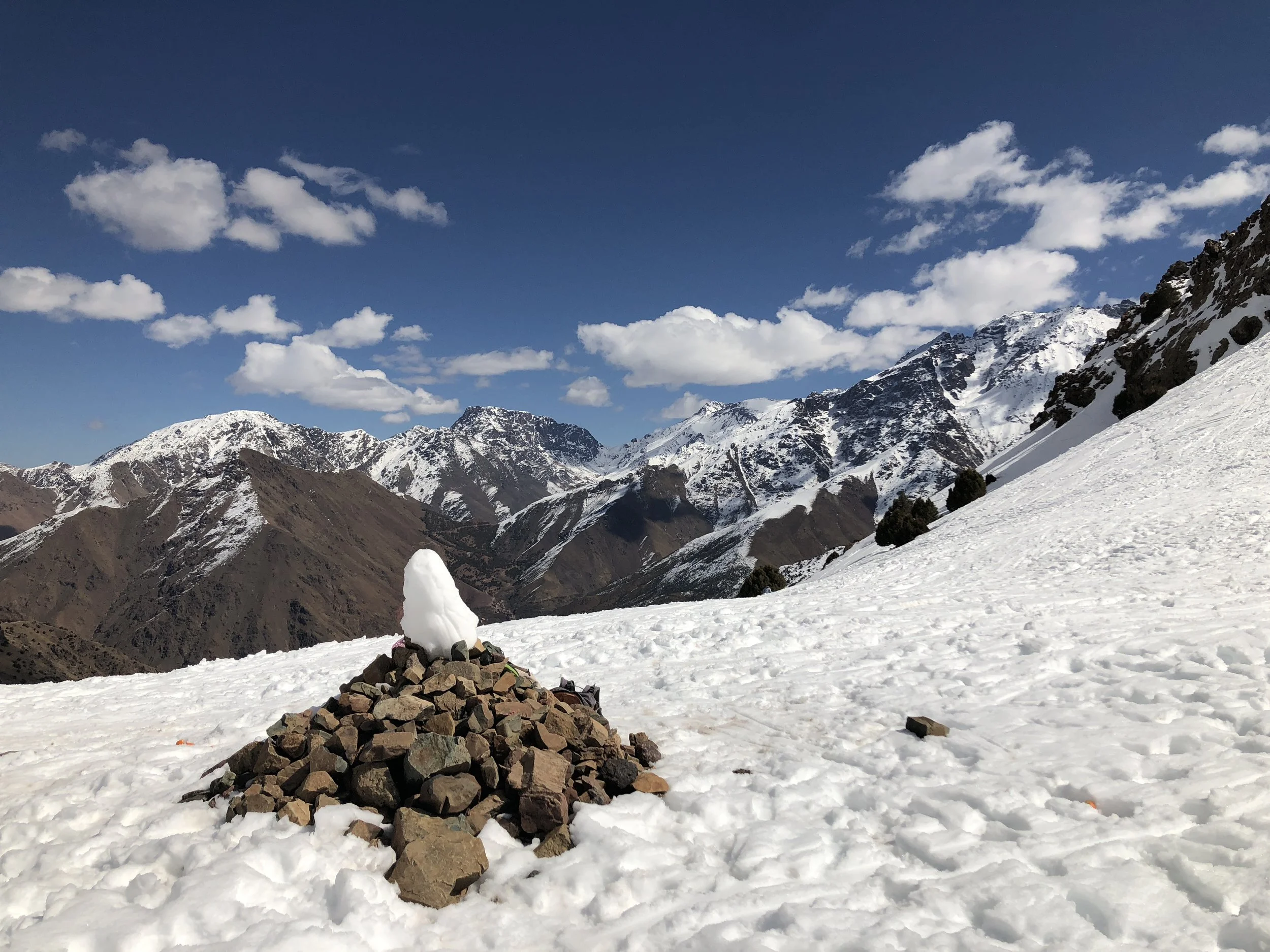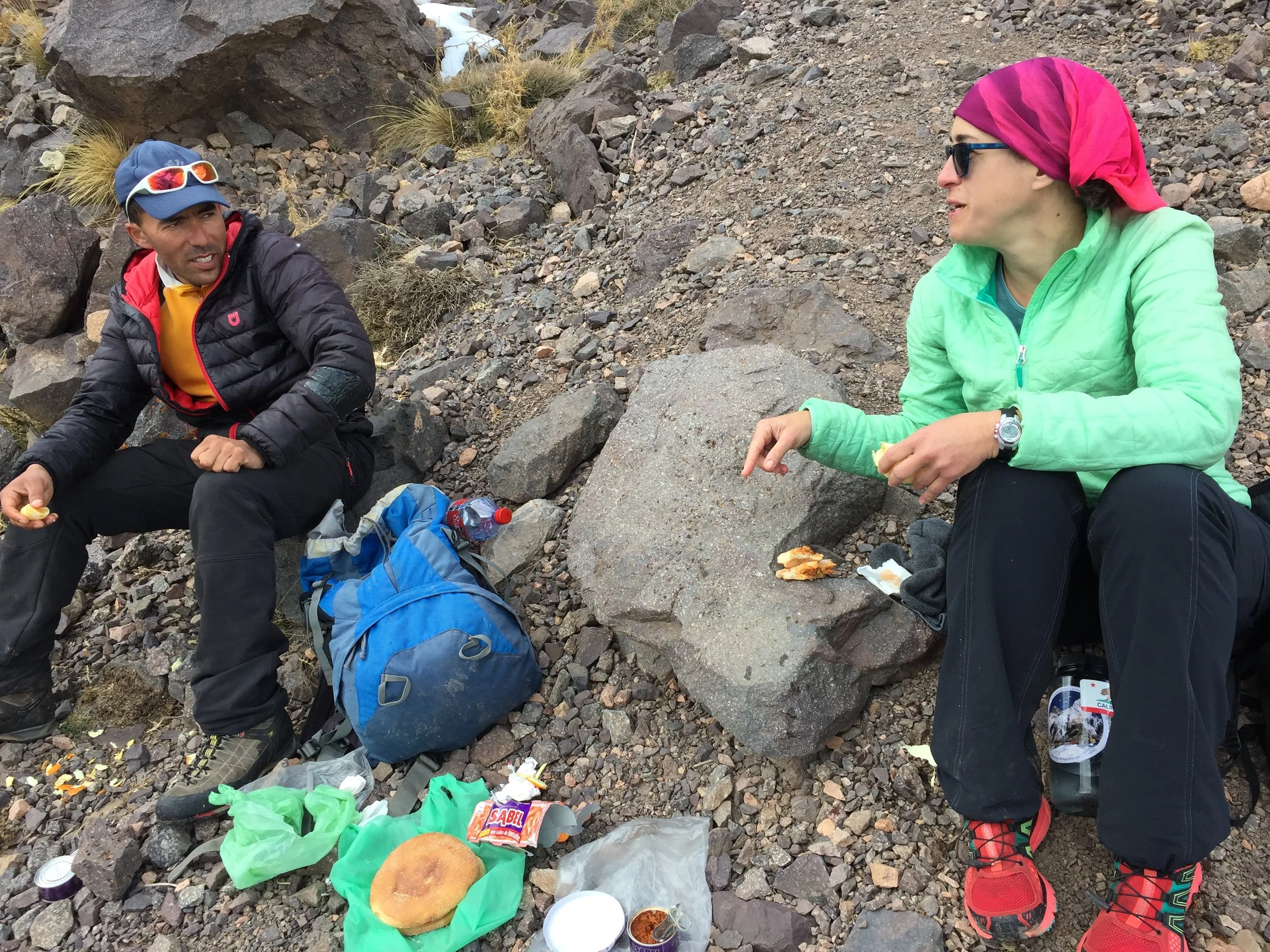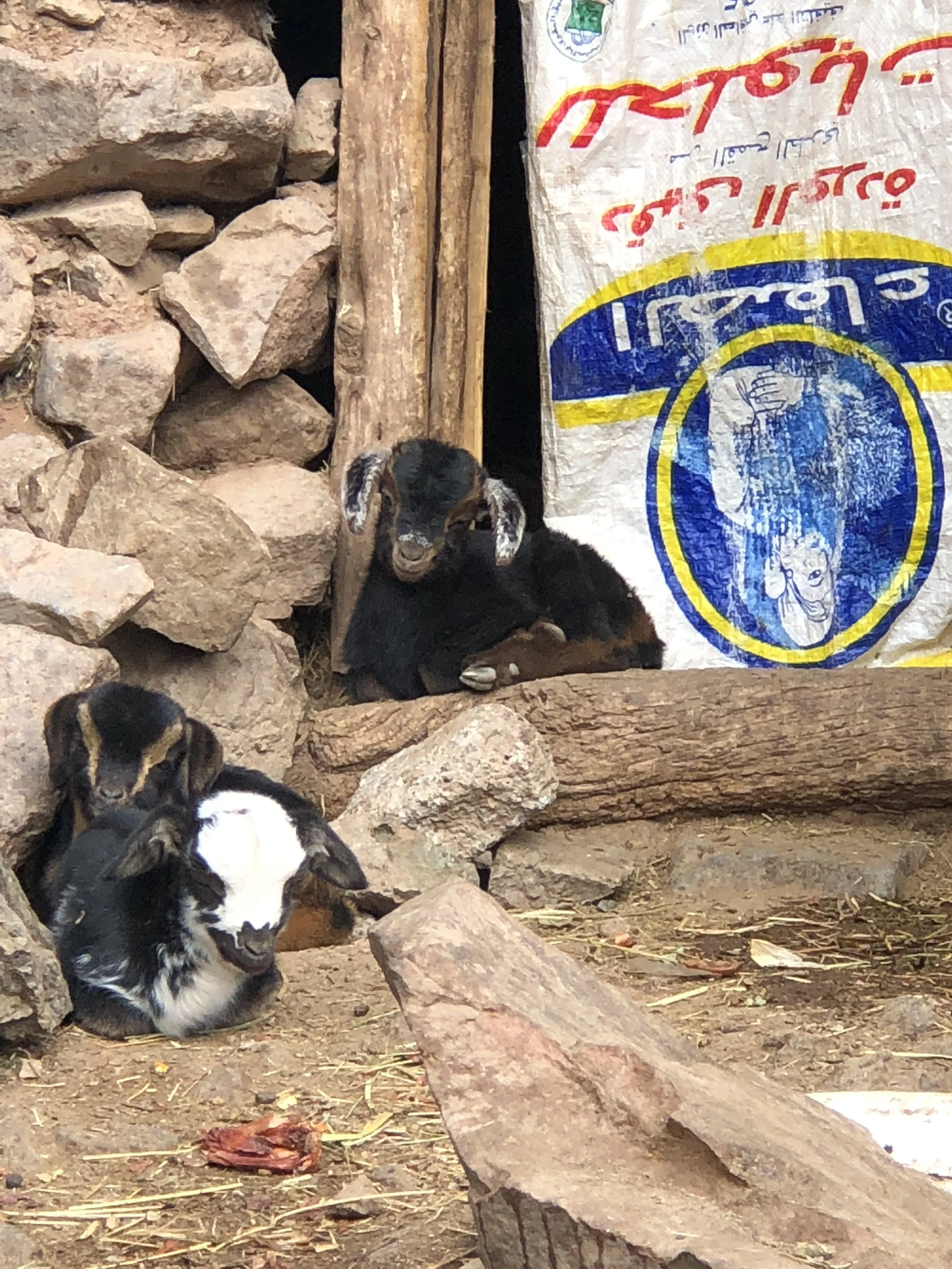Oh Hey, It Snows In Morocco! (Trekking In The Atlas Mountains)
There are a reasonable combination of factors that led me to think the High Atlas would not have snow in February. Or rather, factors that did not lead me to consider it as a possibility. First, Morocco=desert, right? Right. Second, the hiking guidebooks I read talked about avoiding the sweltering summer temperatures, and what's further from summer than February? And the more general advice was that the north is rainy in winter but that central and southern regions have good weather. And they do! And also, the mountains have snow.
Berber village!
Liz and I met our hiking guide Hassan and our muleteer Mohammed (and our mule, Nora) at a trailhead near Imlil, a small town that serves as a good launching point for several Atlas hiking trails. Here's how backpacking works in Morocco: you hire a guide, the guide hires a muleteer and a mule; the mule carries everyone's stuff plus the food and supplies the guide has packed. Mohammed and Nora took a slightly different route than we did -- easier and more direct -- but we met him at a lunchtime meetup spot on the trail, and then again at the end of the day, which left us free to carry only light daypacks. At lunch, Hassan and Mohammed turned out a massive meal over a campfire fire, complete with sweet mint tea served in a tea set.
All of this is embarrassingly luxe, and I felt like my backpacking credentials were being underestimated. But in researching other options, we learned this is really just 'how it's done.' There are definitely hikers who go it alone, and now that I feel more familiar with Morocco, I can imagine doing this without the benefit of a crew. But even on our short two-day trek, we noticed there are no trail signs at all to differentiate the multitude of walking paths that lead over hills to different villages. We stayed overnight in git that was a very simple and pretty cold bunkhouse where Hassan and Mohammed made dinner for us in the communal kitchen; again, I'm not sure how I would have arranged that for myself.


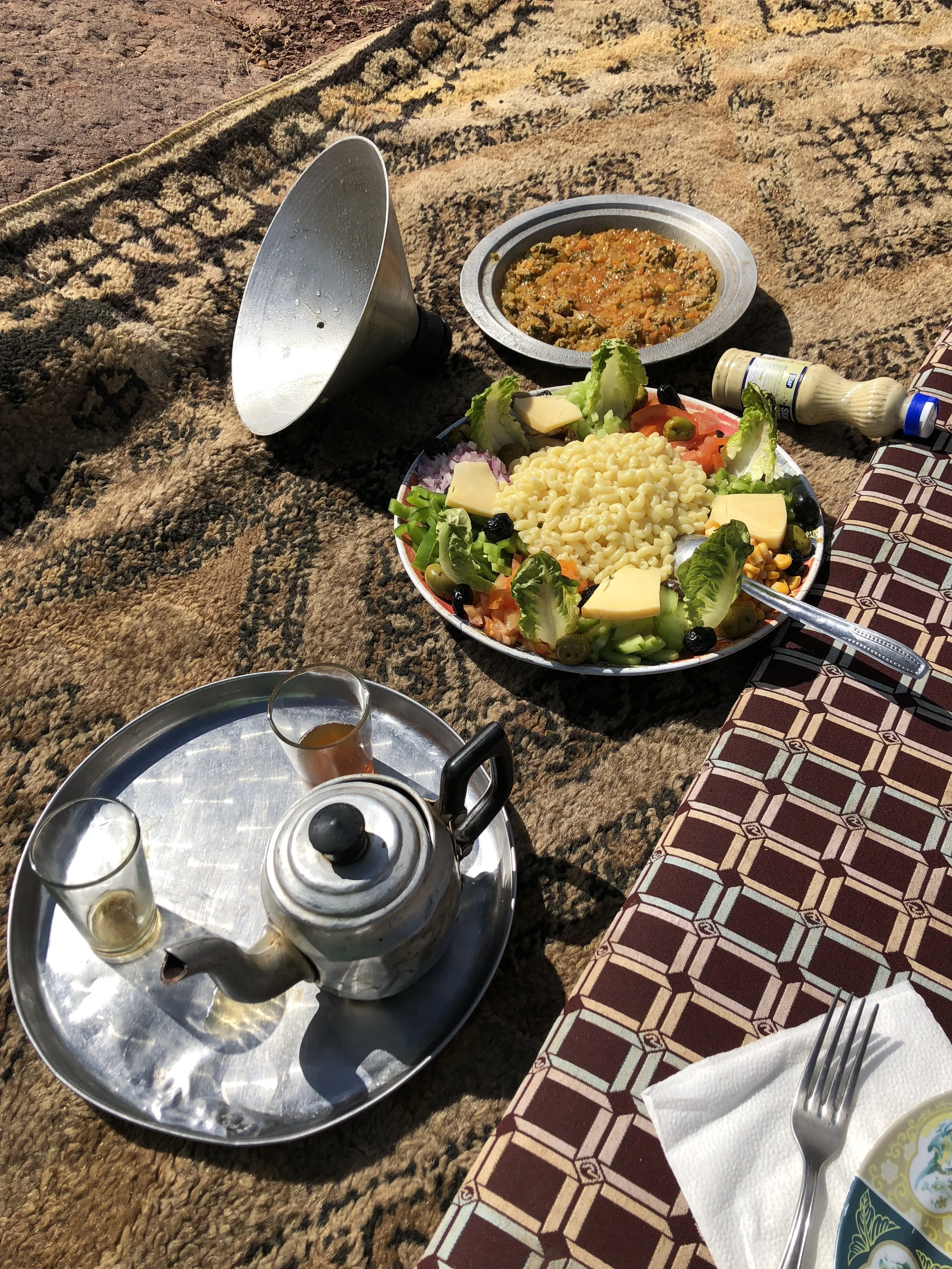
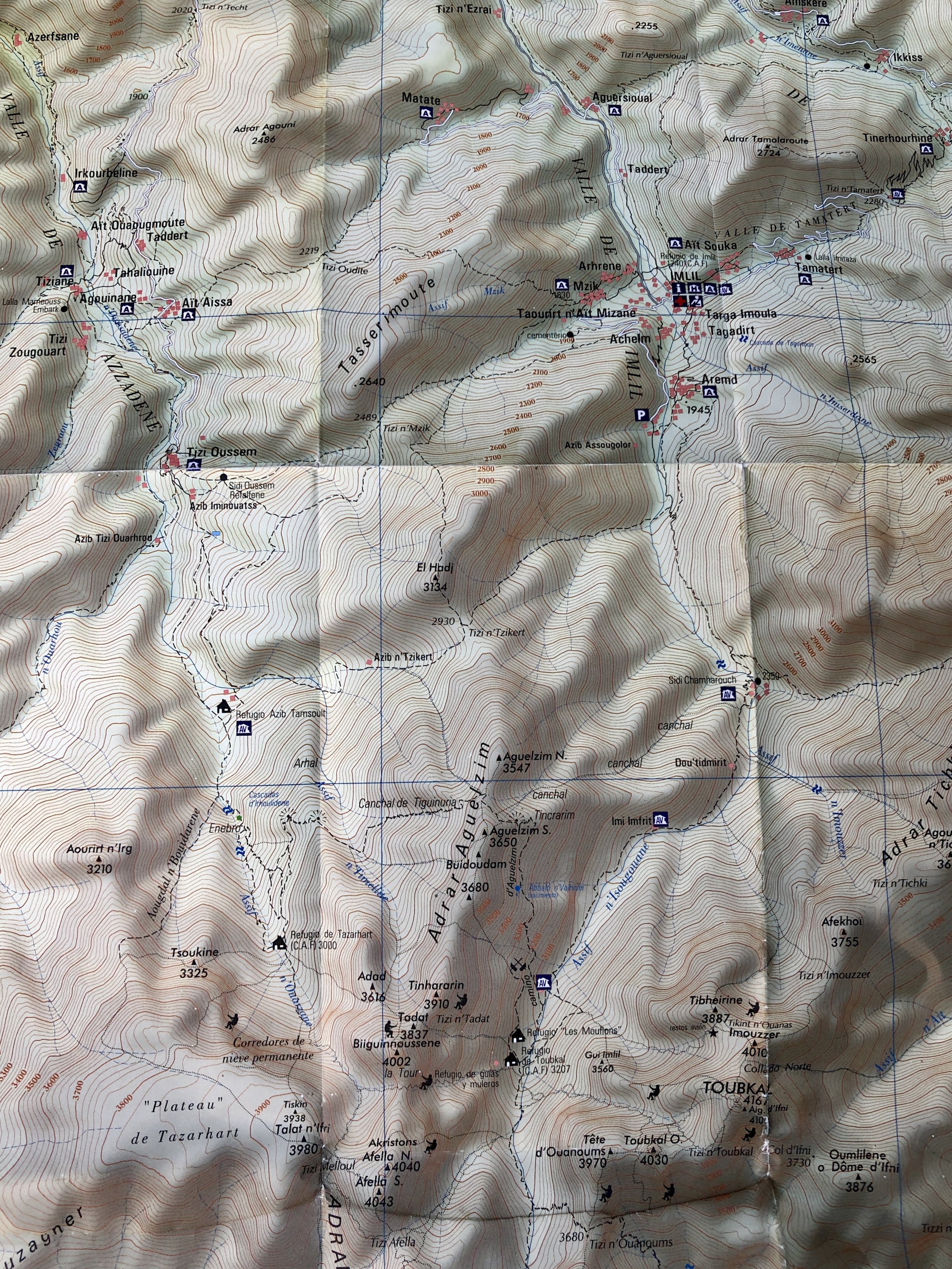
Starting from Imlil valley, the day was like classic autumn weather in Vermont: bright sun that felt hot when it shined on you, but very cool in the shadows. We walked through Matate, a rust-colored Berber village built of mud bricks and fortitude, and Hassan told us about Berber culture while indulging my attempts at adding to my nascent vocabulary. Here, we're still walking on ruddy dirt trails, enjoying the scenery of snow-capped mountains in the distance. We climbed through scrubby junipers along with women who had climbed up from the village to collect firewood, and breathed in the piney air.
After lunch, the sun ducked behind gathering clouds and the trail climbed up through a snow patch in the shaded notch of the mountain pass. Soft snow falling on red earth made a red slushy mix, and Hassan was amused that we found this to be delightful (and so much prettier than the cold dirty slush that's familiar from Vermont in springtime). He was also a little distracted by helping Mohammed lead Nora through the snow; as we walked they altered our plan for the next day to avoid the mule breaking a leg in the snow.
Coming up to the top of Tizi Oudite pass, there was wide saddle so that the distant mountains beyond the valley below us revealed themselves slowly as we climbed higher. Once we stood at the center of the flat top of the pass, there were mountains upon mountains clambering for attention. Covered in snow but with juniper and rock faces pushing through to be seen, the Atlas mountains were stunning. And totally wintry.
The south-facing walk to the valley below put us back on rock and soil pretty quickly, and we had a easy but steep descent to the village where we'd spend the night. Hassan continued telling us about the area, and answering our thousands of questions about water irrigation and whether people are allowed to use the national park land that we were walking through. He explained the boundary markers meant that you can let your animals graze in the park, but they can't be sheltered there. Sometimes if a family has just one small animal, they'll keep it at their house in the village. At this point, Hassan is well versed in my entirely sentimental love of goats and I ask, "So I could live here in this village, and I could keep my baby goat with me at my house?" Hassan smiled ironically and answered, "Insh'Allah."
Goat, not for sale.
The guesthouse in Ait Aissa was cold and we huddled around the least efficient wood-burning stove I've ever met. I was sooo glad that I'd rented a sleeping bag, as sketchy as that idea sounds. Hassan had arranged rooms with mattresses for us to sleep on. (The British guys who were staying there with their guides hilariously had wooden pallets disguised with a blanket.)
Irrigation channel.
The next day we walked down Azzadene valley and hiked over Tizi n’Mzik, a harder and higher mountain pass (read: snowier) and then down into Imlil. The sun was bright and warm and we climbed up switchbacks with small herds of sheep and goats for company, and one runaway donkey that surprised us a little! Stopping among the juniper to soak in the sun and the views was pure bliss.
Hassan had told us that people ski at the top of the pass and we weren't really sure what to expect. First, exactly how much snow are we talking about? And second, cross-country skiing? Vocabulary failed us. I was a little worried that my trail running shoes would fail me, too -- they were totally adequate for the walk, were the walk not covered in several inches of wet snow.
When we crested the top of the pass, it was hard to choose where to direct my attention first: the incredible layers of steep mountains that poked at a jagged horizon as far as the eye could see, or the couple dozen kids on ancient downhill skills who were earning their turns at the top of the hill.
Marker at Tizi n’Mzik
We sat on a low rack wall in the sun to watch the skiers and eat the rest of the trail mix Hassan had made. (Seriously, this stuff was some kind of potent magical trail mix. We tried to replicate it later by buying a bunch of dates, nuts and seeds in the medina and it wasn't quite the same.) These kids, all boys, were pretty awesome. They had hiked up from Imlil, a pretty significant distance and very steep, carrying their equipment. At the top, they strapped on their skis (and the skis' vintage meant a lot of them had actual straps), skinned up the mountain even further and then skied down just past the hut where we sat cheering them on.
We watched them share skis and boots, taking them off and passing them around with little concern for size. Which made me think, Liz is a really good skier. She should totally just borrow someone's skis, right?
Hassan loves this idea. He grabs the kid nearest him and, near as we can tell, says, "Hey kid, give me your skis. And the boots, too." The kids calls to a friend who brings him some shoes and he shimmies out of the ski boots and hops over to put on (someone's?) shoes. These boots are way too small, but by now an interested clutch of guys are eager to find a pair that fit. They get Liz outfitted and she starts sidestepping up the hill to one of the spots where a lot of the kids have started from. A lot of effort for maybe 45 seconds of memorable skiing! Liz made it back to the hut without getting maimed by ill-fitting and unfamiliar equipment, or by rogue debris on the ungroomed hillside. (Note: I attempted to take a video but failed to press start. Just as Liz comes to a stop in front of the hut, I hit the red button to 'stop' the video, which actually starts it. So the only solid evidence of Liz's #skimorocco adventure is a few frames of her standing on skis and my off-camera voice proclaiming, "I took a video!!" I'd like to take this opportunity to apologize for that.)





We slurped through the wet snow down to Imlil, eventually dropping below the snow line to a rocky, scree-covered hillside. Nora and Mohammed had taken an entirely different (and snowless) route today, so Hassan made us a picnic lunch from the food he'd been carrying in his backpack. I made a few stabs at convincing Hassan to teach his young daughters to ski, and made Liz made an attempt at saving me from bits of lunch that I didn't like.
C’mon, let the girls ski!
We walked into Imlil in the late afternoon, just as the temperatures were dropping and the clouds were starting to spit rain. Hassan deposited us at Dar Adar, where comfortable beds, hot showers and a competent wood-burning fireplace awaited us.
Plus, cute baby goats in the neighboring yard.
[Trekking from Imlil: February 17-18, 2018]
